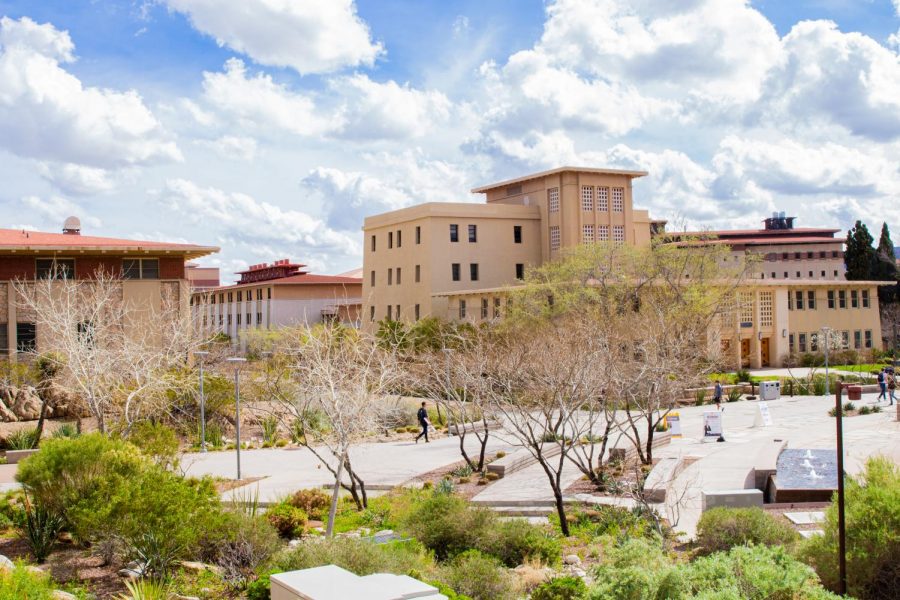For more coverage on COVID-19 and its impact on UTEP, El Paso, the state and the nation, visit The Prospector’s Coronavirus page.
UTEP President Heather Wilson addressed questions concerning remote work for faculty and staff in the midst of the coronavirus outbreak during a university town hall meeting and Twitter takeover on March 19.
“The university is operating, we still intend to try and move our students forward and achieve their educational progress while protecting the health, safety and welfare of the community and the people who work here,” Wilson said. “One of the challenges here is that, apparently, we haven’t had a remote work policy in the past.”
This response comes after faculty and staff raise concerns about the university’s decision to continue its operations despite the efforts and recommendations from the El Paso City Council and Centers for Disease Control and Prevention, to close populated areas in order to combat the coronavirus pandemic. As of March 19, six individuals have tested positive for COVID-19 in El Paso.
“As a staff member, I am concerned about coming to work every day,” one user wrote online during the livestream of the meeting. “We are being put into a dangerous position and I feel as if UTEP doesn’t care about our health and our families.”
Wilson explains that one of the primary reasons the university is steering away from full closure, deals with not being able to provide full services to students who may need to meet in person with a certain department for assistance.
“We need to make sure that whether it’s a student coming in or whether it’s one of your campus colleagues who needs your help or service in order to operate, that we can still visibly operate,” Wilson said. “Usually that means that there is at least one person in an office that people expect in an open and functioning university.”
However, Wilson said supervisors and employees are encouraged to work together and figure out how to get the work done in their department while allowing people to work remotely if possible, including student employees.
“The priority should be to protect the health of those who may be medically fragile for any reason or have an underlying condition,” Wilson said.
For Sonam Choden, her responsibilities as undergraduate student assistant at UTEP’s Office of the Vice President for Student Affairs do not allow her to work from home. Her duties include a high level of interaction with objects and people, such as answering calls, greeting visitors and visiting different offices around campus to complete errands.
“It is quite scary,” Sonam said. “Every move I make, I question myself, ‘Is this safe?’ But these days, the inflow of students and other people into the office has drastically reduced, which is a little bit better.”
Students and faculty like Sonam who cannot work from home are also being prioritized by the university, Wilson explained during a Twitter takeover minutes before the town hall meeting began.
“Social distancing, cleaning, staggered schedules, etc. applies in all offices and we aren’t treating student employees differently than any other employees,” Wilson wrote.
Choden confirmed these are some of the actions her office is implementing to keep her and her colleagues safe.
“Our office is trying to be as hygienic as possible and reducing close personal contacts such as handshaking, or being very close physically,” Choden said. “The meeting areas have been shifted to larger rooms where the participants are farther apart. We also have an increased number of hand sanitizers and tissues in the office, easily accessible to the workers as well as the visitors.”
However, Choden, who uses the money she earns as an assistant to pay her rent and utilities, hopes UTEP can come up with a plan of action that allows employees to work from home and prevent any further contamination of the virus.
“Self-quarantine should be prioritized. I really hope that the university comes up with ways for the student employees as well as other staff members to work from home as soon as possible so that we are spared of the fear and the risk of getting infected,” Choden said. “Because anyone at work or any visitor at work could be infected without symptoms and could spread the virus to all of us at work, which could then be spread to family members or friends at home.”
Wilson ended the meeting by encouraging the community to be patient in times of uncertainty.
“Things are changing every day in this circumstance,” Wilson said. “We’ve got to stay open to change and work through really difficult circumstances as teams who care about the job we do and people we work with.”
The university has set up an information line designed to receive questions from the community regarding the university’s response to COVID-19 that can be reached at 1-877-747-8983 starting at 8 a.m. March 20.
Anahy Diaz may be reached at prospector@utep.edu








